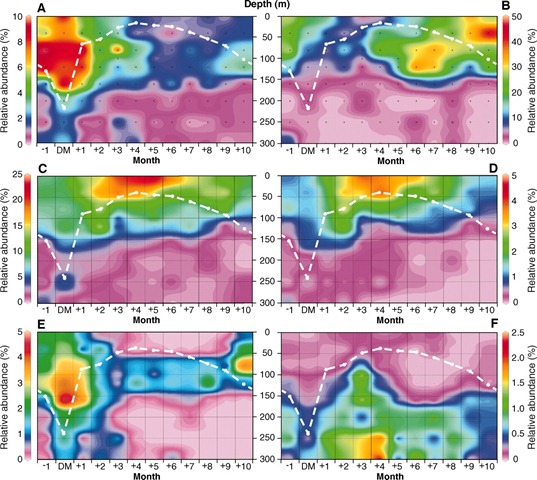Microbial ecosystems changing as oceans warm
Media Contact: David Stauth, 541-737-0787
Stephen Giovannoni, 541-737-1835
CORVALLIS, Oregon – As oceans warm due to climate change, water layers will mix less and affect the microbes and plankton that pump carbon out of the atmosphere – but researchers say it’s still unclear whether these processes will further increase global warming or decrease it. The forces at work are enormous and the stakes huge, said Oregon State University scientists in an article to be published Friday in the journal Science. But inadequate ocean monitoring and lack of agreement on how to assess microbial diversity has made it difficult to reach a consensus on what the future may hold, they said. “We’re just beginning to understand microbial diversity in the oceans and what that may mean to the environment,” said Stephen Giovannoni, an OSU professor of microbiology. “However, a large portion of the carbon emitted from human activities ends up in the oceans, which with both their mass of water and biological processes act as a huge buffer against climate change. These are extremely important issues.” The interest is growing, scientists say, because nearly half of the world’s photosynthesis is contributed by microbial plankton, and the process of marine carbon production and consumption is much faster than on land. A turnover of terrestrial plant biomass takes 15 years, they say, while marine turnover takes just six days. As the ocean surface warms, evidence shows that it will become more “stratified,” or confined to layers that mix less than they did in the past. This should reduce overall ocean productivity, Giovannoni said, but so little is known about the effect on ocean microbes that the implication for carbon sequestration and global warming is less clear. […] “Some warming of surface waters may reduce carbon sequestration, which could cause a feedback loop to increase global warming,” Giovannoni said. “Other forces, what we call the microbial carbon pump, could cause carbon to sink into the deep ocean and be segregated from the atmosphere for thousands of years,” he said. “We know both of these processes exist, but which one will become dominant is unpredictable, because we know so little about ocean microbes.” It was only two decades ago that OSU scientists discovered SAR11, an ocean microbe and the smallest free-living cell known, but one that’s now understood to dominate life in the oceans, thrives where most other cells would die and plays a huge role in carbon cycling on Earth. […]
Ocean microbes changing, but environmental impact is unclear
